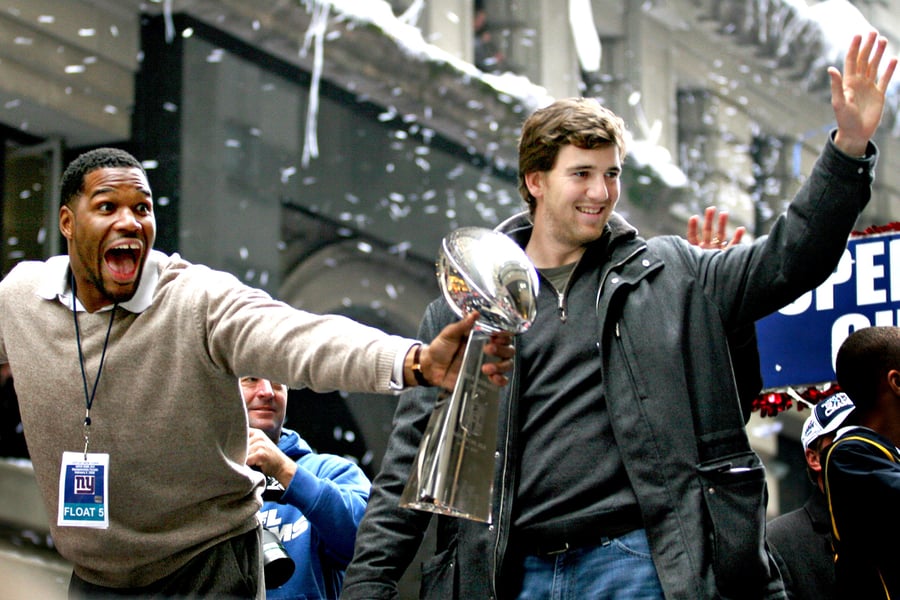Super Bowl predictor may be irrational but has better track record than many stock pickers.
The Denver Broncos aren't the only thing taking a beating.
While pet theories abound on what the Super Bowl means for markets, one can cite data showing the benchmark gauge for American equities has climbed 0.67% on average in the week after the game, compared with 0.1% in the five days preceding it, according to data compiled by CXO Advisory Group and Bloomberg from 1967 to 2013. The index slumped 1.9% as of 1:25 p.m. Monday after a gauge of manufacturing fell more than estimated.
Stock market losses Monday show investors aren't feeling any extra confidence after Sunday night's game, when the Seattle Seahawks beat the Denver Broncos by a score of 43-8. The S&P 500 slid as a gauge of manufacturing fell more than estimated, extending last week's decline from a selloff in currencies from Argentina's peso to the Russian ruble.
“The current economic conditions domestically and the weakness in the emerging markets may circumvent that historical data,” said Walter “Bucky” Hellwig, who helps manage $17 billion at BB&T Wealth Management. “The Super Bowl indicator is a great talking point, a great conversation starter. I don't know anybody that makes bets on the market based on the Super Bowl winner.”
INVESTOR PSYCHOLOGY
The Institute for Supply Management's factory index decreased to 51.3 in January from 56.5 the prior month, the group's report showed Monday. Readings above 50 indicate expansion. The equity benchmark has tumbled 5.4% since a Jan. 15 record as the Federal Reserve cut its bond-buying program and emerging-market currencies tumbled amid signs growth was slowing in China.
The Super Bowl “certainly has the ability to influence moods,” E. William Stone, chief investment strategist at PNC Wealth Management, which manages about $117 billion, said in a phone interview. “Investor psychology makes a difference when you think about the financial markets. The fact is fundamental factors can overwhelm these physiological factors, and I think that's where we are at the moment.”
The Seahawks captured their first Super Bowl since joining the National Football League in 1976 with a win over the Broncos, the biggest margin of victory by an underdog in the game's 48-year history. In the fifth Super Bowl matchup between the league's top-ranked offense and No. 1 defense, the defensive team won for the fourth time.
'TOTALLY IRRATIONAL'
The Super Bowl Predictor Theory, which says the market will gain for the year if an National Football Conference team or American Football Conference team with NFC origins wins the game, has been correct in 37 of the past 47 years, according to Howard Silverblatt, a senior index analyst at S&P Dow Jones Indices in New York. While an NFC team, Seattle doesn't fit easily into the hypothesis because it's an expansion team and has played in both conferences.
“Every once and a while there are some events which are totally irrational, but they happen,” Mr. Silverblatt wrote in an e-mailed report last month. The system has “a much better track record than most stock pickers.”
The equity benchmark finished the year higher 80% of the time whenever a team from the NFC, which includes the Seahawks, won the Super Bowl, according to data compiled by Bloomberg. The AFC's triumphs produced positive returns about 68% of the time. The Broncos are members of the AFC.
“It's very hard to argue that the Super Bowl has any effect whatsoever in terms of determining stock prices,” Dan Greenhaus, chief global strategist at BTIG said. “The stock market is a 20-plus trillion dollar conglomeration of millions of investors at any moment, and there's no way a meaningful portion of them are changing their investments based on the Super Bowl.”
(Bloomberg News)







